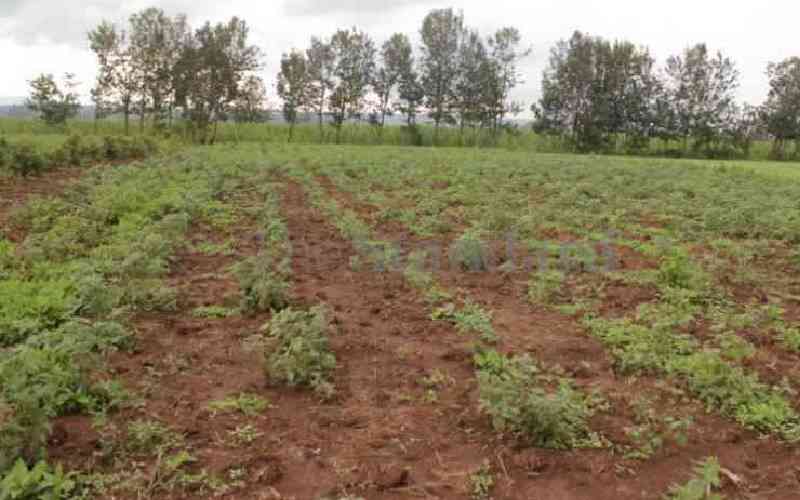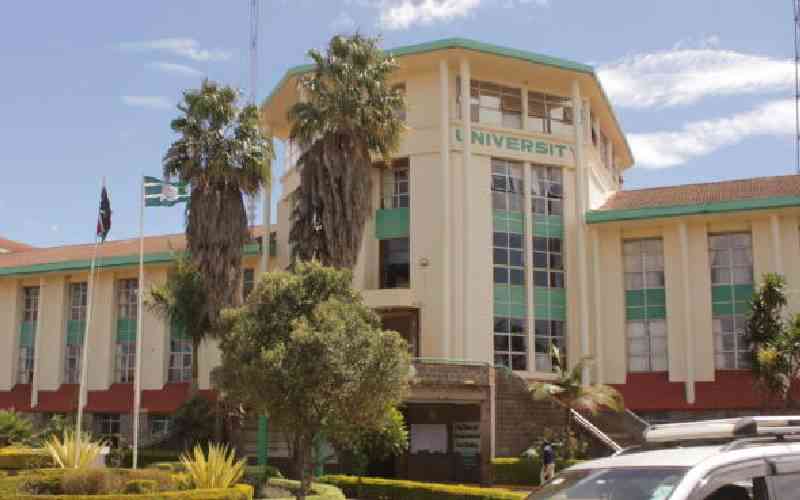I have visited many counties since the year began: Nyamira, Kisii, Migori, Nakuru and Laikipia, and all have the same story about water scarcity and helpless residents looking for the commodity in vain.
In the Gusii counties where rain is the norm rather than the exception most of the year, poor leadership and lack of planning at the county level have conspired to worsen the water situation and residents now pray for rain.
A visit to other towns attests to the same serious water scarcity. In the end, Kenyans will be exposed to waterborne diseases such as typhoid, amoeba and cholera. This explains why about 80 per cent of hospital attendance in Kenya is due to preventable diseases and about 50 per cent of these illnesses are water, sanitation and hygiene related.
Yet this story on water security is one of the biggest challenges of the 21st century, touching nearly on each of our 47 counties. A situational analysis shows that only 9 out of 55 public water service providers give continuous water supply, leaving people to find their own ways of searching for appropriate solutions to this basic need. Without changes to business-as-usual, the future is grim for all of us: water becoming more scarce.
We know that water scarcity is both a natural and human-made phenomenon. Even though there is enough freshwater to ensure access to clean water for everyone, its distribution is uneven and too much of it is wasted, polluted, or unsustainably managed. The expected degree of water scarcity will account for a significant loss to Kenya’s gross domestic product.
Poor practices
Paradoxically, there is enough freshwater to ensure access to clean water for everyone, but it is distributed unevenly and too much of it is wasted, polluted, or unsustainably managed. This is Kenya’s Waterloo in managing its scarce water resources.
There is a big problem in our country, though. Drying water reservoirs, rivers and all; about waste and sewage and chemicals polluting streams, rivers and major waterways.
This is a basic characteristic of most of Kenya’s urban centres and towns, including villages. Therefore, minimising waste is particularly crucial. Our food production has been on the dip in recent years due to poor policies combined with poor practices in harvesting, storage, transportation, and because more than a third does not get consumed, we are in real danger of starvation and death.
What’s even more challenging is that land, water, fertilisers, and energy required in producing food, are all inefficiently managed. And because food production will soon be the sure dominant water user in Kenya as is elsewhere in the world, more effective management of water in this context will have the greatest impact.
Reducing loss and waste of food alone could save billions of dollars and trillions of litres of water for our livelihood.
Clear recommendations
What is not in doubt is that rapid growth of urban areas has lead to large volumes of water being extracted from existing sources. The influx of water, in addition to the influx in human waste, has outpaced the development of wastewater management systems, which has lead to pollution of natural water bodies in most of our urban centers and towns alike.
Achieving better water management within our counties and country will require dedicated investment in research to develop more accurate water systems that will drive action, as well as improved communication between policy makers and researchers, who need to provide clear recommendations on how to implement solutions. We cannot just sit back and watch as population increases and poor policies see us sink further the road towards thirst.
The national and county governments should be more proactive in setting legislative framework needed, and other household and private sector interventions to ensure that there is enough water for all to realise objectives.
Stay informed. Subscribe to our newsletter
Water harvesting is a major challenge and steps should be taken to work on serious rainwater harvesting strategies, large-scale wastewater recycling, sustained water tower conservation as national assets, massive and continuing tree planting and a reduction of river pollution and radical reduction of water wastage practices.
What Kenya needs is transformation in water-management policies if the country is to feed her ever growing population and fix allied sectors for development.
What this means is that President Uhuru Kenyatta’s food security and health agenda will remain just that, unless drastic steps are put in place to ensure water security and attendant benefits.
Prof Mogambi, Communication and Social Change Expert, teaches at the University of Nairobi.hmogambi@ yahoo.co.uk
 The Standard Group Plc is a
multi-media organization with investments in media platforms spanning newspaper
print operations, television, radio broadcasting, digital and online services. The
Standard Group is recognized as a leading multi-media house in Kenya with a key
influence in matters of national and international interest.
The Standard Group Plc is a
multi-media organization with investments in media platforms spanning newspaper
print operations, television, radio broadcasting, digital and online services. The
Standard Group is recognized as a leading multi-media house in Kenya with a key
influence in matters of national and international interest.
 The Standard Group Plc is a
multi-media organization with investments in media platforms spanning newspaper
print operations, television, radio broadcasting, digital and online services. The
Standard Group is recognized as a leading multi-media house in Kenya with a key
influence in matters of national and international interest.
The Standard Group Plc is a
multi-media organization with investments in media platforms spanning newspaper
print operations, television, radio broadcasting, digital and online services. The
Standard Group is recognized as a leading multi-media house in Kenya with a key
influence in matters of national and international interest.








